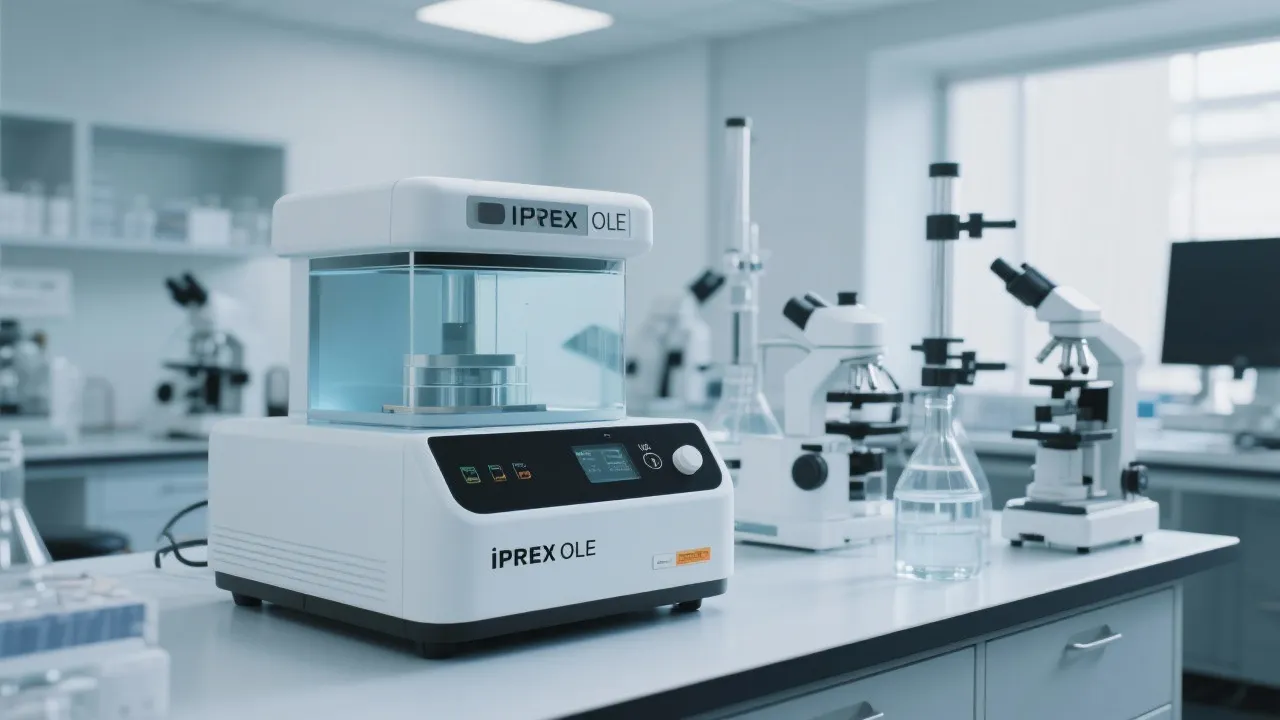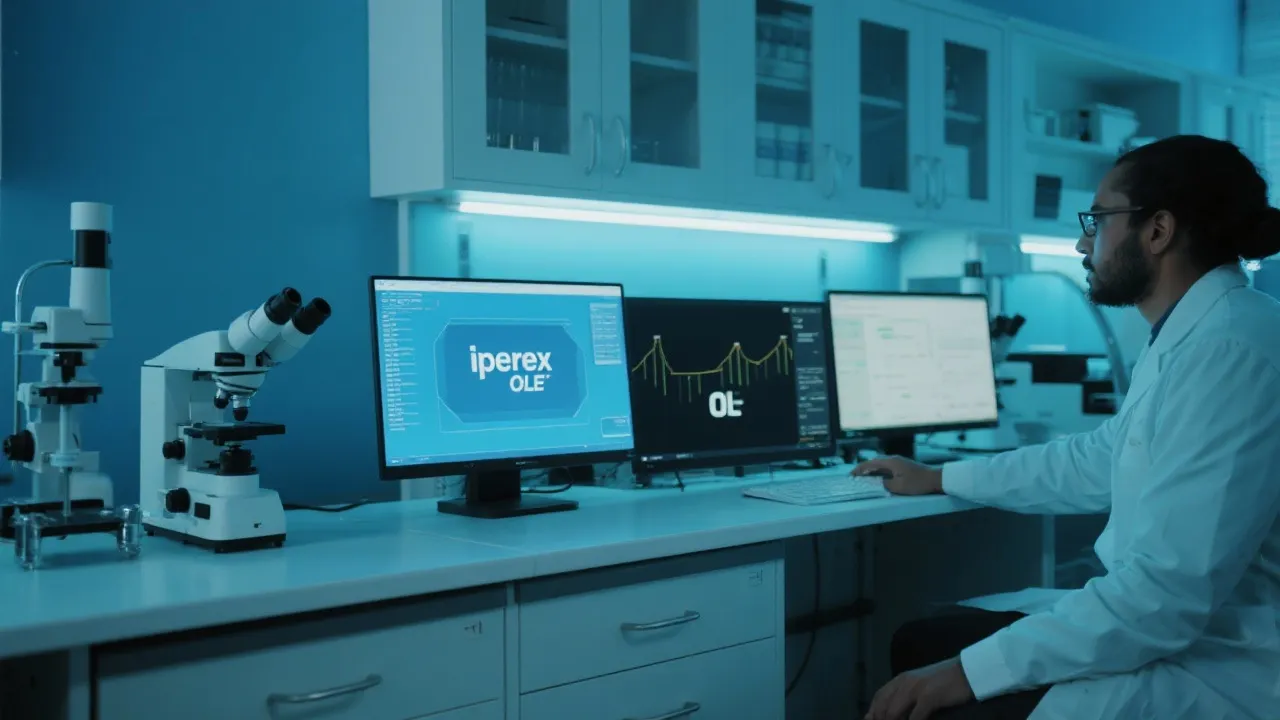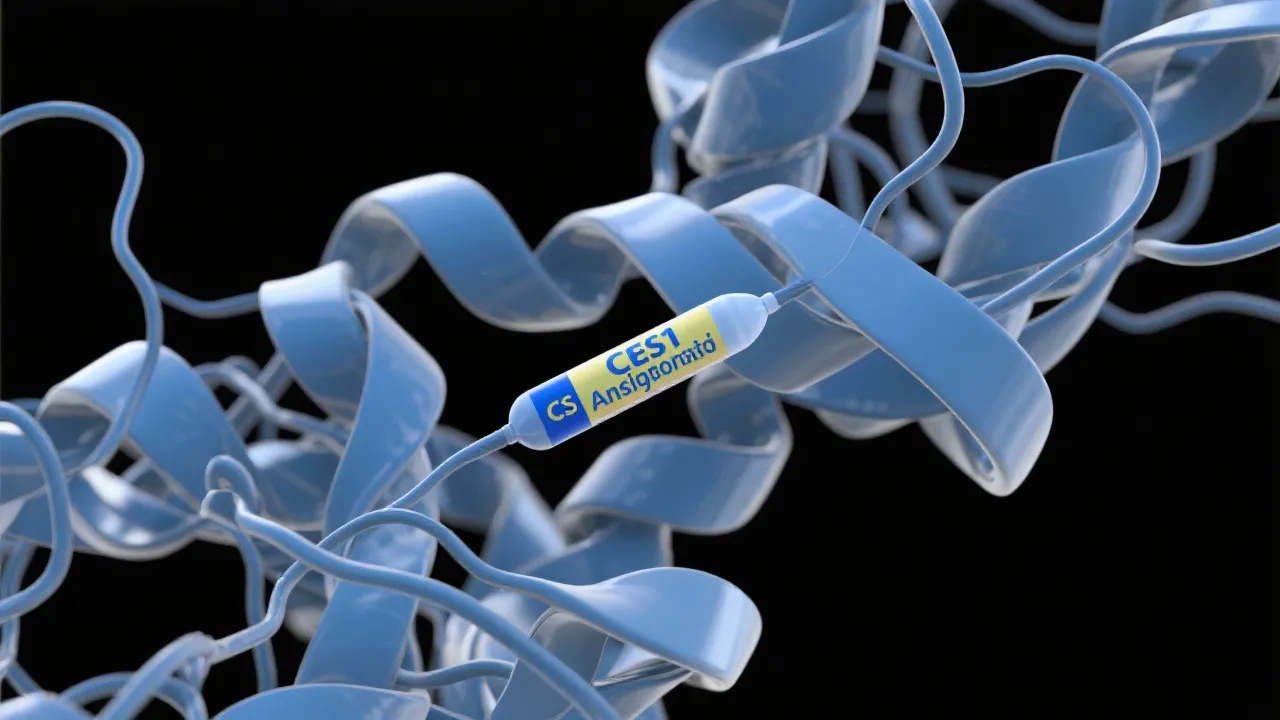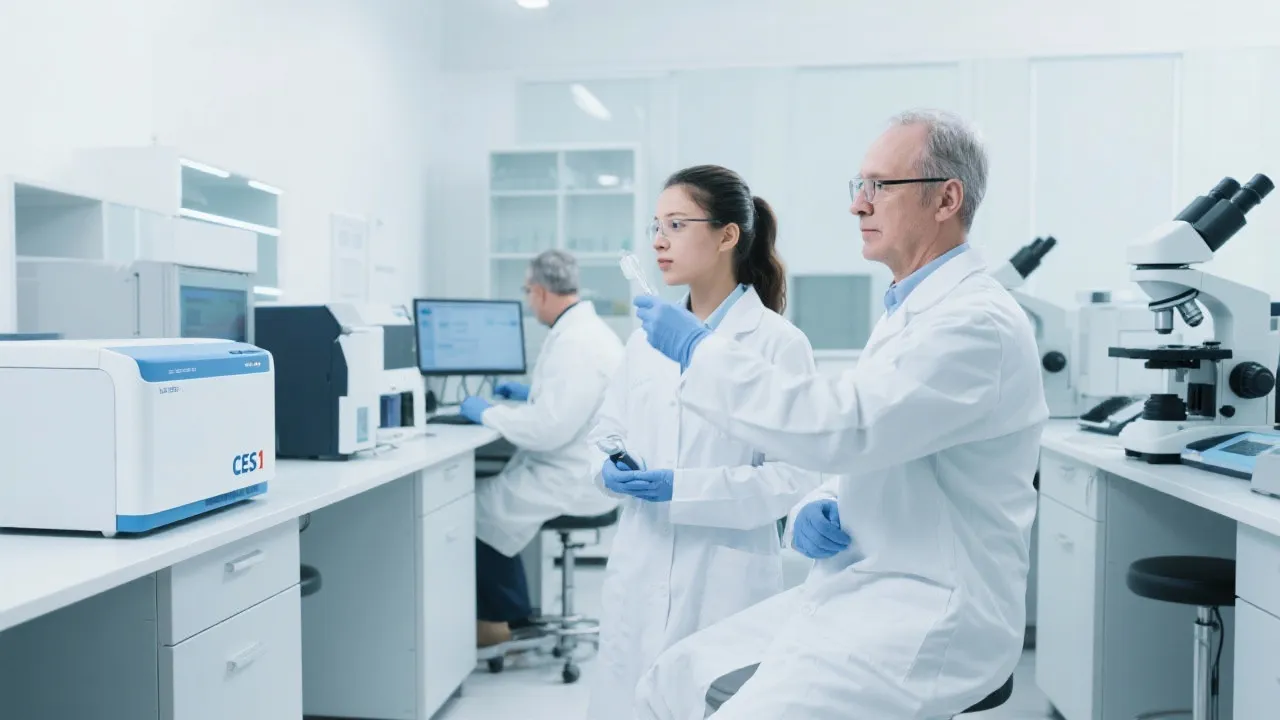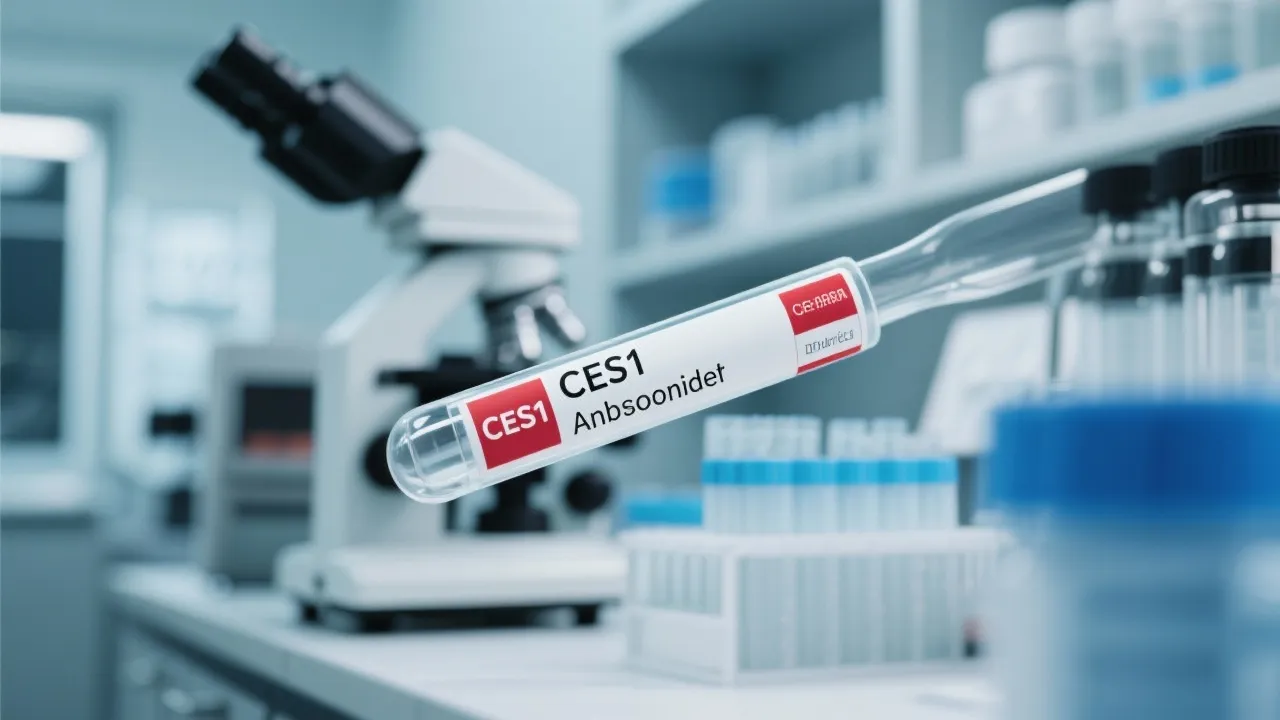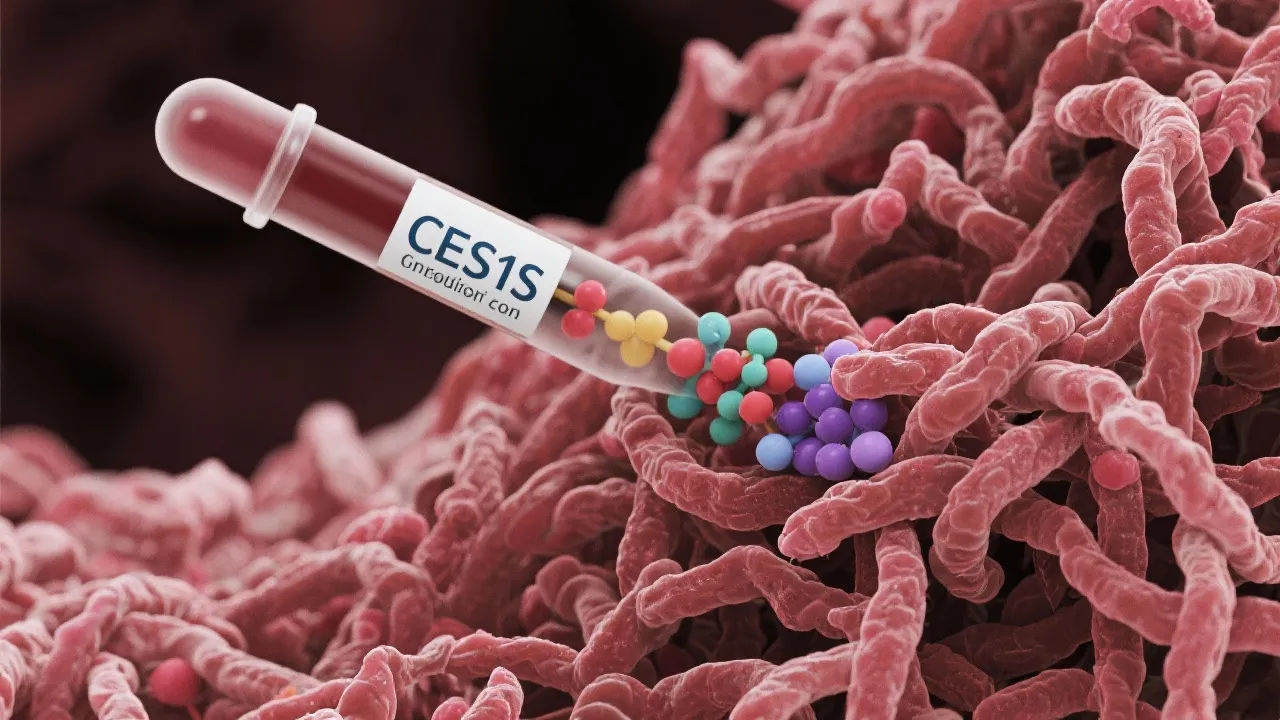Understanding the Role of Ces1 Antibody
In the realm of biochemistry and pharmacology, Ces1 antibodies play a crucial role in the study of carboxylesterase 1, an enzyme involved in drug metabolism. This analysis delves into the importance of Ces1 antibodies, highlighting their applications in research, their significance in the medical field, and considerations for their use in clinical and laboratory settings.

Importance of Ces1 Antibody in Scientific Research
Ces1 antibodies are essential tools in scientific research, particularly in the study of enzyme activity and drug metabolism. Carboxylesterase 1 (CES1) is a significant enzyme that participates in hydrolase activity, breaking down ester and amide bonds within various substances, including medications. Understanding its function is crucial for developing new therapeutic strategies and pharmacokinetics studies, as CES1 influences how the body reacts to drugs. The broad range of substrates acted upon by CES1 emphasizes its medical relevance, especially concerning drug metabolism and the activation or deactivation of pharmaceutical compounds.
This enzymatic activity is especially pertinent in pharmacology since the efficiency of drug action can be heavily influenced by metabolic processes. In addition, CES1 also plays a vital role in the detoxification of potential xenobiotics and endogenous substances, highlighting the importance of this enzyme not only in therapeutic contexts but also in overall health maintenance. Consequently, utilizing Ces1 antibodies becomes a foundational aspect of research into how this enzyme functions in various biological systems, potentially leading to improved drug design and therapeutic interventions.
Applications of Ces1 Antibody
Ces1 antibodies are predominantly utilized in laboratory research for the detection and quantification of CES1 enzyme levels. Such applications are vital to understanding the enzyme's role in liver function and its impact on the metabolism of therapeutic drugs, including those used for cardiovascular diseases and mental health disorders. By using Ces1 antibodies, researchers can investigate enzyme expression in various physiological and pathological states, providing insights into disease mechanisms and potential treatments.
One key area of application is in the field of oncology where CES1 might influence the efficacy of chemotherapeutic agents. For example, certain anticancer drugs, like irinotecan, are prodrugs that require conversion by CES1 to exert their therapeutic effects. The variability in CES1 activity among different patient populations can lead to differences in drug efficacy and toxicity. Therefore, the ability to accurately measure CES1 levels using Ces1 antibodies is paramount for tailoring chemotherapy regimens to individual patient profiles.
Furthermore, researchers are also employing Ces1 antibodies in the study of metabolic diseases, where altered enzyme activity can lead to drug-drug interactions or modify the metabolism of endogenous substrates. For conditions such as diabetes or obesity, understanding how CES1 is regulated can provide breakthroughs in managing these chronic diseases. Researchers studying animal models of diabetes have utilized Ces1 antibodies to observe changes in enzyme levels corresponding with metabolic interventions. Such studies have potential implications for developing therapies directed at improving metabolic function or drug response.
Considerations for Using Ces1 Antibody
When utilizing Ces1 antibodies, researchers must consider the specificity and sensitivity of the antibodies to ensure accurate results. Quality control is paramount to avoid cross-reactivity with other protein targets, which can lead to misleading data. Researchers often employ various validation steps to confirm the specificity of the antibody, including using knockout models or siRNA techniques to ensure that observed effects are indeed due to CES1 activity.
Additionally, compatibility with various detection methods such as Western blotting or ELISA must be assessed to suit specific experimental conditions. Each technique comes with its advantages; for example, ELISA provides quantitative data from a larger sample size, while Western blotting offers insight into protein size and post-translational modifications. Understanding the chosen assay's limitations and strengths is essential for obtaining reliable and reproducible results. Proficiency in laboratory protocols and understanding the enzymatic processes involved will enhance the reliability of the data gathered.
Moreover, one must take into account the biological variability in different sample types. The expression level of CES1 can vary based on factors such as age, sex, health status, and genetic makeup. Therefore, when designing experiments, it is crucial to include appropriate controls and consider the potential influence of these variables on the interpretation of findings.
Industry Insights on Ces1 Antibody Utilization
According to industry experts, the utilization of Ces1 antibodies in research settings has expanded with the increased emphasis on precision medicine. Tailoring treatments based on individual metabolic responses to drugs is becoming more feasible with the detailed enzymatic activity information provided by these antibodies. This trend promotes personalized therapeutic regimens, optimizing treatment effectiveness and minimizing adverse effects.
Various pharmaceutical companies are beginning to incorporate CES1 genetic profiling into their drug development pipelines, utilizing Ces1 antibodies to identify how patients metabolize drugs differently. By understanding CES1 activity, clinicians can predict which patients are likely to benefit from certain medications and adjust dosages accordingly, significantly improving patient outcomes. The emerging field of pharmacogenetics, powered by tools such as Ces1 antibodies, holds promise for revolutionizing treatment standards across numerous medical disciplines.
Additionally, the regulatory landscape is dynamically evolving to accommodate advancements in personalized medicine. Regulatory agencies are beginning to recognize the importance of metabolic enzymes in drug approval processes, leading to a growing body of guidelines focused on how to test for CES1 activity effectively. As more testing becomes routine, the demand for Ces1 antibody products may continue to increase, positioning them as a staple in pharmacological research and clinical testing.
| Aspect | Details |
|---|---|
| Primary Use | Detection and analysis of CES1 enzyme activity in biological samples. |
| Applications | Drug metabolism research, pathology diagnosis, and pharmacokinetics studies. |
| Techniques | Western blotting, ELISA, immunohistochemistry, and flow cytometry. |
| Considerations | Specificity, sensitivity, and experimental compatibility. |
| Challenges | Maintaining consistency across experiments and ensuring proper antibody validation. |
| Future Directions | Integration into pharmacogenetic testing and personalized medicine approaches. |
Frequently Asked Questions (FAQs)
Q: What is the main function of CES1?
A: CES1 is an enzyme that hydrolyzes ester and amide bonds, playing a significant role in drug metabolism.
Q: How does Ces1 antibody enhance research?
A: Ces1 antibody allows for the precise detection and analysis of CES1 enzyme levels, aiding in understanding metabolic responses and disease mechanisms.
Q: What are some of the challenges in using Ces1 antibodies?
A: Ensuring antibody specificity, avoiding cross-reactivity, and aligning with appropriate detection methods are key challenges in using Ces1 antibodies efficiently.
Q: How can CES1 levels be modulated?
A: CES1 activity can be influenced by genetic factors, environmental toxins, dietary components, and certain medications. Understanding these factors can be vital in optimizing drug therapy.
Q: Are there any known CES1 inhibitors?
A: Yes, certain drugs and compounds have been identified as CES1 inhibitors, which can significantly affect drug metabolism, yielding heightened concentrations of drugs that are normally metabolized by this enzyme. For example, the anticoagulant drug dabigatran is known to be affected by CES1 modulation.
Conclusion: In summary, Ces1 antibodies are indispensable in modern biochemical and pharmacological research, paving the way for breakthroughs in drug development and personalized medicine. By offering valuable insights into the functionality of CES1 enzymes, Ces1 antibodies contribute significantly to advancing our understanding of drug metabolism and therapeutic interventions. The combination of enhanced research capabilities, improved patient safety, and optimized treatment protocols represents a comprehensive advancement driven largely by innovations with Ces1 antibodies. The global healthcare landscape stands to benefit immensely from these developments, ensuring that patients receive effective and efficient drug therapies tailored to their unique biological profiles.
